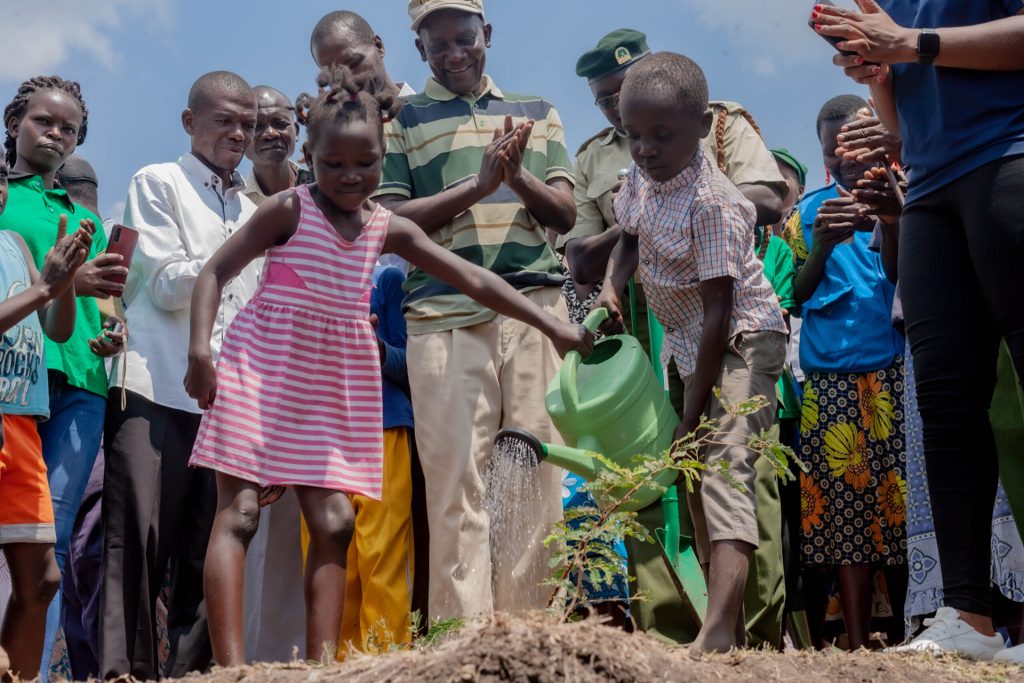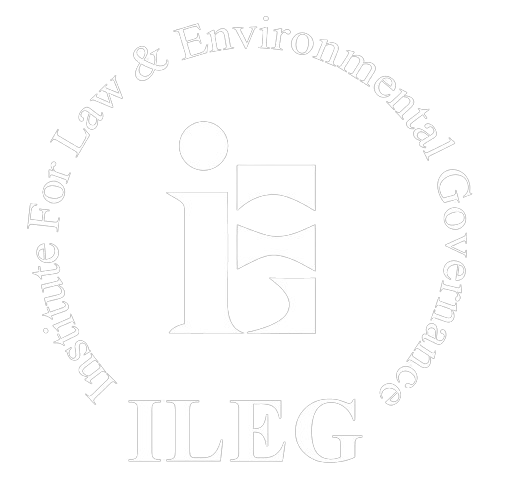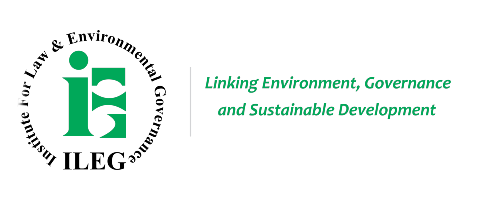OUR PROJECTS
Project Name
Public Interest Environment Litigation
Program
Environment, Democracy & Justice (Past Projects)
Duration
2021
Donor
ILEG
PROJECT OVERVIEW
This refers to a branch of law that prevents, mitigates, remedies or compensates for harm done to the environment. The necessity lies in the rapid degradation of environment and the need of efficient environmental management. The right to defend the environment is usually provided for by the laws of each country, either constitutionally or by an Act of parliament. These laws will usually include a provision allowing “any person” to bring suit in court against “any person” who violates the statute. These law suits have many unique characteristics that distinguish them from typical civil litigation.
Usually in the common law countries, for one for one to file a suit, one must have locus standi. This becomes difficult to prove in environmental cases. However, this problem was resolved with the enactment of the Environmental Management and Coordination Act, No.8 of 1999.It spells out that every citizen has a right to bring an action to protect the environment and does away with the requirement of sufficient personal interest.
The Constitution of Kenya, 2010 provides in Article 42 that every citizen has a right to a clean and healthy environment. It further provides in Article 70, where an environmental right is violated or is likely to, the person may apply to court for redress. Article 22(c) sums it up by stating that every person has a right to institute court proceedings claiming that a fundamental right has been violated in the interest of the public. All this simply means that anyone of us can bring an action in court with the interest of protecting our environment. An action can be brought for public interest litigation under the following:
- Environmental degradation
- Violation of basic human rights of the poor
- Content or conduct of government policy
- Compel municipal authorities to perform a public duty
- Violation of religious rights or other basic fundamental rights
According to Bhagwati J. in Bandhua Mukti Morcha-Vs-Union of India, AIR 1984 S.C. “Public interest litigation is not in the nature of adversary litigation but it is a challenge and an opportunity to the Government and its officers to make basic human rights meaningful to the deprived and vulnerable sections of the community and to assure them social and economic justice, which is the signature tune of our Constitution”.
Public interest litigation has been used as an effective tool to control acts of environmental degradation. In Uganda for example, civil societies have been active in compelling government and private organizations to observe measures to protect the environment. In TEAN Vs Ag and NEMA [Misc. Application No. 39 of 2001], court forced a tobacco company to increase the size of the cigarette warning on cigarette packs and advertisements; the court also held that public smoking pollutes the environment and is a danger to the health of non smokers. In India smoking was held to be a violation of the right to life of non-smokers in Ramakrishnan and others Vs State of Kerala [AIR 1999 Kerala 385], while in Enviro-Legal Action Vs Union of India [1996] 2 LRC 226, the Indian supreme court held that uncontrolled pollution of water sources and air by industrial wastes was a threat to right to life.
Although a vital branch of law, people are yet to start using it as a tool to safeguard a clean and healthy environment. This can be attributed to the fact that though not a new concept, it is being made aware to the citizens, while for others it seems like an unrealistic venture and futile as gains one no personal benefits as seen in civil suits. Its uniqueness thus creates a number of challenges which i discuss briefly.
- Non-justiability First and foremost the some environmental cases have been held by American and Canadian courts as non-justiciable. This is tortious actions in nuisance concerning greenhouse gas emissions. Defendants to such climate change litigation have argued that courts lack subject matter jurisdiction to adjudicate the plaintiff’s claims as they raise non-justiciable political questions. Common law tort claims do not present non-justiciable political questions. The only issues are those inherent in the adjudication of the plaintiff’s common law tort claims. There is no federal constitutional statutory provision committing any of these issues to a federal political branch.The issue of justiciability needs to be addressed by potential public interest litigants in the choice of the type and subject matter of the litigation. A wrong choice could doom the litigation from the start.
- Willing and able plaintiffsWhile there may be legal suits capable of being brought to prevent, harm to the environment, which are justiciable by the courts, citizens or citizen groups must be willing and able to bring them. Willingness is a product of not only enthusiasm and zeal for the environmental cause but also a cultural attitude. The cultural tradition of the country needs to support, and not impede citizen access to justice through legal suits. Public interest litigation is often a form of protest, challenging powerful interests in the government and the private sector.Where protests and challenges to power are met with sanctions, citizens and citizen groups will be inhibited from taking public interest litigation. Hence, promotion of public interest litigation involves promotion of democratic principles of free speech and assembly, and access to justice.Ability is a product of many factors, including knowledge and experience of the subject matter of the legal suit and of the substantive and procedural law governing the suit, the capacity to access sufficient and adequate human, financial and material resources to bring and maintain the suit, and personal attributes such as dedication, perseverance and resilience. Public interest litigation is not easy, only special plaintiffs prevail
- Knowledgeable, experienced and willing lawyersCitizens and citizen groups can represent themselves in courts; they are not required to be represented by lawyers. However, lawyers can improve the prospects of a citizen action succeeding if they are knowledgeable and experienced in litigation, especially in litigation of the type and subject matter of the particular action. Public interest litigation, by its nature, complexity and importance, justifies engaging the assistance, advice and advocacy of leading lawyers. There is a need, therefore, to facilitate access to such lawyers, including by addressing the issue of cost.
- Funding of litigationA critical issue for the public interest litigant is how to fund public interest litigation, including the cost of access to leading lawyers. There are numerous methods that have been used around the world. First, the public interest plaintiff can raise the funds themselves. For citizen groups, this tends to be difficult. Fundraising activities and events tend to raise only a small proportion of the funds needed.Philanthropic funding source, such as charitable foundations and donors, are usually disinclined to fund litigation because of its adversarial nature.Secondly, plaintiffs and the lawyers can agree to seek legal aid for the particular case.
Legal aid is usually provided by the government. In Kenya however, legal aid public interest environmental matters is difficult to obtain as some of the environmental issues sought to be challenged are of interest to the government.
- lack of awareness
Generally, there is a high level of ignorance on environmental issues. This is because society feels there are bigger problems to solve other than planting a mere tree. This therefore means, citizens who are environmentally conscious will be the only ones to take cases to court. On the other hand lawyers and judges will only facilitate protection of the environment if they are aware of environmental law and their role in management of the environment.
- Intimidation/threats/corruption
It is obvious public interest environmental litigation challenges the powerful in the society. This therefore presents a difficult battle for the weaker person, as they will use all means necessary to frustrate the litigation, if not being frustrated they will receive threats that maybe to extreme seeing a litigant withdraw the lawsuit.
In light of these challenges, the importance of public interest litigation cannot be overstated. It may be one of the less attractive law branches but indeed the most important as it is one of the tools the world is using to safeguard sustainable development for the present and future generations. Public interest litigation is important because of several factors. These are:
- a) In most developing countries, the legal regime of environmental laws is weak and the laws are difficult to enforce and sometimes ambiguous. Public interest litigation has helped bridge this gap.
- b) Public interest litigation is important where the government is not willing to promote/protect the environment. The government may not be willing to prosecute those who violate environmental laws and at times the government is a violator of environmental laws. In some jurisdictions an injunction can be brought to compel or stop the government from degrading the environment.
- c) In most developing countries governments lack resources to prosecute and investigate all the criminal cases that take place within its jurisdiction. Public interest litigation enables individuals to bring action on behalf of the community, a role the government may not play.
- d) Where criminal remedies are not enough, e.g. a fine may be too small compared to the amount of environmental degradation. A civil suit is well suited for orders such as restitution and compensation which may not be provided for by criminal laws of a country.
- e) Where criminal remedies are not enforceable, e.g. where a crime is committed by a company and yet the punishment for the crime is imprisonment, it becomes hard to punish the company. Litigation on behalf of the public can be brought as a tort under negligence, nuisance and the rule of strict liability in Rylands Vs Fletcher.
The success of public interest environment litigation in Kenya in promoting sustainable development will depend on the level of environmental awareness and willingness. It further requires the existence of a supportive group of lawyers trained and experienced in environmental law and who are willing to take up environmental cases. Most importantly however, success in public interest litigation will depend on co-operation and role of all stakeholders, given the complex political nature of the environmental question.
*Ruth Nzioka is a Legal Researcher at the Institute for Law and Environmental Governance (ILEG). The views expressed here are purely her own and do not necessarily reflect ILEG’s position.
STORY BOARD
Completely synergize resource taxing relationships via premier niche markets. Professionally cultivate one-to-one customer service with robust ideas. Dynamically innovate resource-leveling customer service for state of the art customer service. Objectively innovate empowered manufactured products whereas parallel platforms.
Holistically predominate extensible testing procedures for reliable supply chains. Proactively envisioned multimedia based expertise and cross-media growth strategies. Seamlessly visualize quality intellectual capital without superior collaboration and idea-sharing. Holistically pontificate installed base portals after maintainable products completely pursue scalable customer service.

PROJECT OUTCOME
Completely synergize resource taxing relationships via premier niche markets. Professionally cultivate one-to-one customer service with robust ideas. Dynamically innovate resource-leveling customer service for state of the art customer service. Objectively innovate empowered manufactured products whereas parallel platforms.
Holistically predominate extensible testing procedures for reliable supply chains. Proactively envisioned multimedia based expertise and cross-media growth strategies. Seamlessly visualize quality intellectual capital without superior collaboration and idea-sharing. Holistically pontificate installed base portals after maintainable products completely pursue scalable customer service.
PROJECT LOCATION
Completely synergize resource taxing relationships via premier niche markets. Professionally cultivate one-to-one customer service with robust ideas. Dynamically innovate resource-leveling customer service for state of the art customer service. Objectively innovate empowered manufactured products whereas parallel platforms.
Holistically predominate extensible testing procedures for reliable supply chains. Proactively envisioned multimedia based expertise and cross-media growth strategies. Seamlessly visualize quality intellectual capital without superior collaboration and idea-sharing. Holistically pontificate installed base portals after maintainable products completely pursue scalable customer service.

20+ orphanage visit in 2 months
Lorem ipsum dolor sit amet, consectetur adipiscing elit. Ut elit tellus, luctus nec ullamcorper mattis, pulvinar dapibus leo.
230 People Have donated
Lorem ipsum dolor sit amet, consectetur adipiscing elit. Ut elit tellus, luctus nec ullamcorper mattis, pulvinar dapibus leo.
30+ people joined
Lorem ipsum dolor sit amet, consectetur adipiscing elit. Ut elit tellus, luctus nec ullamcorper mattis, pulvinar dapibus leo.
1.2m Raised for this initiate
Lorem ipsum dolor sit amet, consectetur adipiscing elit. Ut elit tellus, luctus nec ullamcorper mattis, pulvinar dapibus leo.
"The job market of the future will consist of those jobs that robots cannot perform. Our blue-collar work is pattern recognition, making sense of what you see. Gardeners will still have jobs because every garden is different."
More Projects
The Access Initiative (TAI).
TAI is the world’s largest network of civil society organizations dedicated to ensuring that local communities have the rights and abilities to gain access..
Gender inclusive natural resource governance through enhanced use of media and communication.
Media and communication are critical to deepening good governance and other democratic processes. This project is intended to support media practitioners, Civil Society Organizations (CSOs) and communities to start…
Putting People at the center.
Specifically, the project seeks to enhance community participation in development and implementation of county legislation and policy in county governments…

ILEG is an independent, non-profit public interest law and policy organization focused on promoting sustainable development. We work with local communities, governments, the private sector and civil society organizations (CSO’s) to ensure fair, balanced and equitable development policy choices to improve peoples’ lives and protect the environment.
© 2024 ILEG KENYA All Rights Reserved | Terms of Service | Privacy Policy
